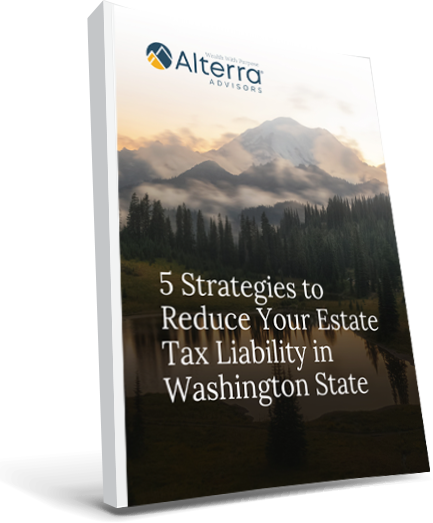Is Your Business Legacy Plan Built to Last?
Every business owner wants to leave a strong legacy for their family—but too often, important steps are overlooked or delayed. And legacy planning for a business-owning family is no simple matter. The question isn’t just how to divide assets. It’s how to pass on values, preserve relationships, and ensure your life’s work continues successfully.
What happens when your children have different goals, talents, or levels of involvement in the business? What if your current plan treats them “equally” but not “equitably”?
The way you approach your legacy and succession planning today could impact the long-term health of your business—and the unity of your family tomorrow.
Estate Plan vs. Legacy Plan: What’s the Difference?
When many people hear the term estate planning, their minds go straight to money—wills, trusts, and technical documents that activate after death.
These are essential. But they aren’t the whole story.
Your legacy is broader. It includes your values, your vision for the future, and how you want your family and business to carry on. It’s the story you want to write, not just the assets you want to transfer.
Too often, legacy is treated like a transaction. In truth, it’s a conversation—a long-term strategy guided by purpose, not just paperwork.
Don’t Let Tools Drive the Plan—Let Vision Lead
One of the most common planning pitfalls we see? Letting techniques drive the process, rather than your vision.
Yes, there are incredible tools—trusts, tax strategies, business structures—that can optimize your plan. But those tools shouldn’t dictate your legacy.
Imagine a toolbox where every advisor uses the same hammer, regardless of the problem. That’s what happens when techniques are applied without context. The result? A plan that might look sophisticated on paper, but doesn’t reflect your real goals—or the dynamics of your family business.
Instead, start with your vision. What’s most important to you? Who do you want to lead the business? How do you want your children to be supported, involved, or empowered? Let these answers guide the planning, not the other way around.
Why “Equal” Isn’t Always “Equitable”
We often hear business owners say, “I love my children equally, so I’ll divide everything equally.” On the surface, that feels fair. But in practice—especially when a business is involved—it can create real problems.
Here’s a real-world example:
- A family-owned manufacturing business is run by two sons, Bob and Tom. A third son, Ed, has no involvement in the company.
- By default, the parents will divides the business equally among the three sons—one-third each.
- But this creates a problem: Ed now owns one-third of a company he doesn’t work in. Bob and Tom must either share profits with someone who doesn’t contribute—or buy him out, which can strain the business or relationships.
- Resentment builds. The plan that was meant to preserve unity now threatens it.
Sadly, this isn’t uncommon. According to the Family Business Alliance, only 30% of family businesses make it to the second generation. Just 12% survive to the third.
The cause? Not market shifts—but misaligned succession planning.
A Better Path: Intelligent Estate Equalization
Rather than using a one-size-fits-all approach, we help families think through a more nuanced, values-driven plan—what we call intelligent estate equalization.
This strategy starts with two questions:
- What’s your vision for the business?
- What are your heirs’ goals, and how do they align (or not) with that vision?
Back to our earlier example: In an intelligently equalized plan, Bob and Tom would inherit the business. Ed, who isn’t involved, would receive other assets that are equal in value but not tied to the company. This protects the business while ensuring all heirs feel valued.
Since most of the estate’s value may be locked in the business, we use tools like life insurance, legacy trusts, and other strategies to create the right balance. The result is a plan that supports:
- Business continuity
- Family harmony
- Tax efficiency
It’s not just equal—it’s equitable and sustainable.
Already Have a Will? You May Still Need More
Even if you already have a will or a basic estate plan, it might not be enough.
Especially for business owners, thoughtful legacy planning goes deeper. It ensures your assets support your goals, your heirs understand your wishes, and your business remains a thriving part of your legacy—not a source of confusion or conflict.
The process doesn’t have to be overwhelming. In fact, most families we work with find that the hardest part is starting the conversation.
Your Business. Your Values. Your Legacy.
A strong legacy isn’t just about who gets what. It’s about building a future that reflects who you are and what matters most to you.
That’s why we believe legacy planning should start with listening—understanding your story, your family dynamics, and your long-term vision. From there, we help you build a plan that simplifies complexity, protects your business, and passes on more than just wealth.
If you’re navigating these questions and want a partner to help bring clarity to the process, we’re here to walk with you—step by step.
Let’s create a legacy plan that honors your life’s work and strengthens your family’s future.
The “Alterra” name was coined by joining the Latin roots “alter”, the origin of the word “altruism” with “terra” meaning earth or land. This name reflects the company philosophy of “clients before profits” and providing firmly grounded advice.


